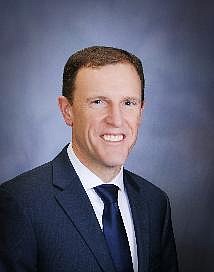The second session of the 66th Idaho Legislature is nearly complete
The second session of the 66th Idaho Legislature is nearly complete.
Every year, the Idaho Legislature meets starting in January and normally ends in March. Last year, the legislative session ran exceptionally long. This year, it looks like we will finish in the typical timeframe. The goal is to adjourn by March 25.
At this time in the session, many details are being finalized but aren’t quite done yet. In this final week, I expect we will increase the grocery tax credit and most likely make an adjustment to the property tax circuit breaker law to fix the problem from last year’s legislation. In a few weeks, I will provide a summary of significant legislative action for the year. I can provide some near-final spending numbers.
The Idaho state budget will total somewhere close to $12.7 billion. Of this total, around $4.6 billion is our Idaho income tax and sales tax dollars, known as general funds. Approximately $5.7 billion is federal tax dollars. Finally, $2.4 billion will come from dedicated funds. Examples of dedicated funds include the gas tax, hunting tags or fishing licenses, and camping fees. Dedicated funds are collected by a specific agency and stay within the agency to provide a service to those who are paying the fee or tax. Federal tax funds are provided as a grant to the state for a specific purpose. General fund use is determined by the legislature each year.
As an example, the K12 public schools budget will total $3.4 billion this year. Federal funds will provide $943 million of that money. $129 million will come from dedicated funds, and we will use approximately $2.3 billion of Idaho general funds.
The transportation department is distinctly different in its funding. With a total funding of just over $1.1 billion, federal funds will provide almost $400 million. Approximately $700 million will come from dedicated funds such as the gas tax and vehicle licensing. General funds dollars typically do not flow into the transportation department budget.
Shifting from the current legislative session, I will share some of the other activities I participate in as your state senator, typically during the summer and fall months.
For three years now, I have been a member of the LINE Commission. The Leadership In Nuclear Energy Commission supports the activities of the Idaho National Laboratory through recommendations to the Governor on state policies and actions. The Commission has its origins in the 1995 Settlement Agreement between Idaho and the federal government regarding nuclear waste in Idaho. As a former Navy nuclear submariner who trained at the Idaho National Laboratory, I find the work valuable to the State because of Idaho’s significance to the U.S. nuclear energy industry. My goal in working on the commission is to push for a national solution to the spent nuclear fuel issue.
Currently, I am serving on the Governor’s Cybersecurity Task Force. The Task Force has the mission of providing recommendations on cybersecurity measures in Idaho to ensure the safety of electronic data and systems, both public and private. A Task Force report is coming out this month.
Last year, I served on the Idaho Content Standards Review Committee. Parents, teachers, State Department of Education employees, and legislators all met for extensive amounts of time to review and modify the Idaho Content Standards for our K12 education system. The legislature is in the process of approving the results.
The Public Defense Commission is tasked with ensuring that indigent public defense meets the requirements of the U.S. and Idaho constitution. I joined a year ago, as a legislative member of the nine-member commission, serving with Boundary County Commissioner Dan Dinning who represents Idaho counties on the Public Defense Commission. The legislature is currently working on a new funding model for public defense that will shift the tax burden from local property tax to the State. I am actively taking part in the discussion and may sponsor the legislation in the Senate.
I also participate in Pacific Northwest Economic Region activities. Many Idaho legislators take part in PNWER programs to establish and maintain relationships with counterparts throughout the area. Those relationships were beneficial this year when a Washington legislator proposed taxing all fuel moving through Washington state. Much of our fuel in Idaho comes through Washington. One of our Idaho legislators was able to express to the Washington legislature, through a previously established relationship, the significant economic harm the Washington tax would cause to Idaho. The Washington tax proposal was defeated. In addition, through PNWER, I was able to spend time in the White House explaining to staff the positive results of the Good Neighbor Authority program which allows the Idaho Department of Lands to assist in managing federal timber lands here in Idaho.
Finally, I serve as Chairman of the Idaho Council on Indian Affairs. The Council is a forum for communication and decision-making between the State of Idaho and the five Native American tribes of Idaho. The State-Tribal Relations Act of 1999 established the Council and sets guidelines. We are currently scheduling the next meeting for June at the Fort Hall Reservation near Pocatello.
As always, I appreciate the opportunity to represent our northern two counties. Please never hesitate with questions or comments.
• • •
Sen. Jim Woodward represents District 1, Bonner and Boundary counties, in the Idaho Senate. He can be reached at jwoodward@senate.idaho.gov.

